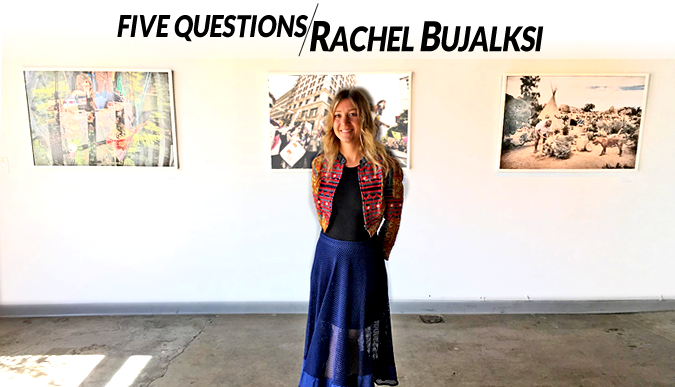
On one side, Rachel Bujalski’s work reveals the overlooked aspects of an America in crisis. Having gained unprecedented access to her off-the-grid subjects, we as viewers of her photos become witnesses to a rich tapestry of what folks call home. By seeing a day in the life of a family who live deep in the woods it becomes clear that happiness is not necessarily a luxury condo with a view.
The concept of what home actually is becomes open to interpretation.
From families living in DIY cul-de-sacs far in the California desert, couples beginning life in a tiny house to a solitary life long activist that has taken his roots literally into the trees, Venice based photographer Rachel Bujalski’s discoveries are less anthropological finds and more an exploration in her own discovery of the expanding nature of home.
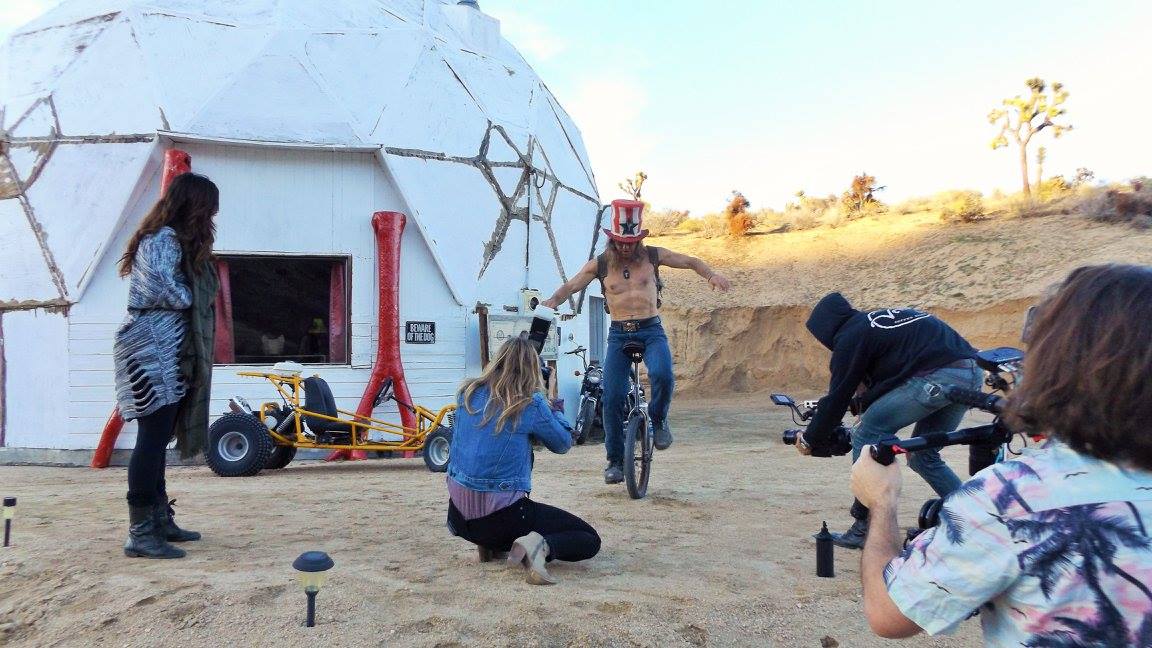
Some have left cities out of necessity but not all. And in that purpose — within the drive to pick up and leave the matrix her photos reveal the definition of freedom. Yes, some echo the impoverished slices of real-life tragedy that Robert Frank’s The Americans shocked 1960’s America with. Being one of the foremost photography books of the century, The Americans actually shaped the view that the 1950’s post-war American dream was an illusion. However, in many ways Rachel’s Life Off the Grid series continues the conversation past the tragic images of improverished Americans.
We see in her work the very nature of human connection.
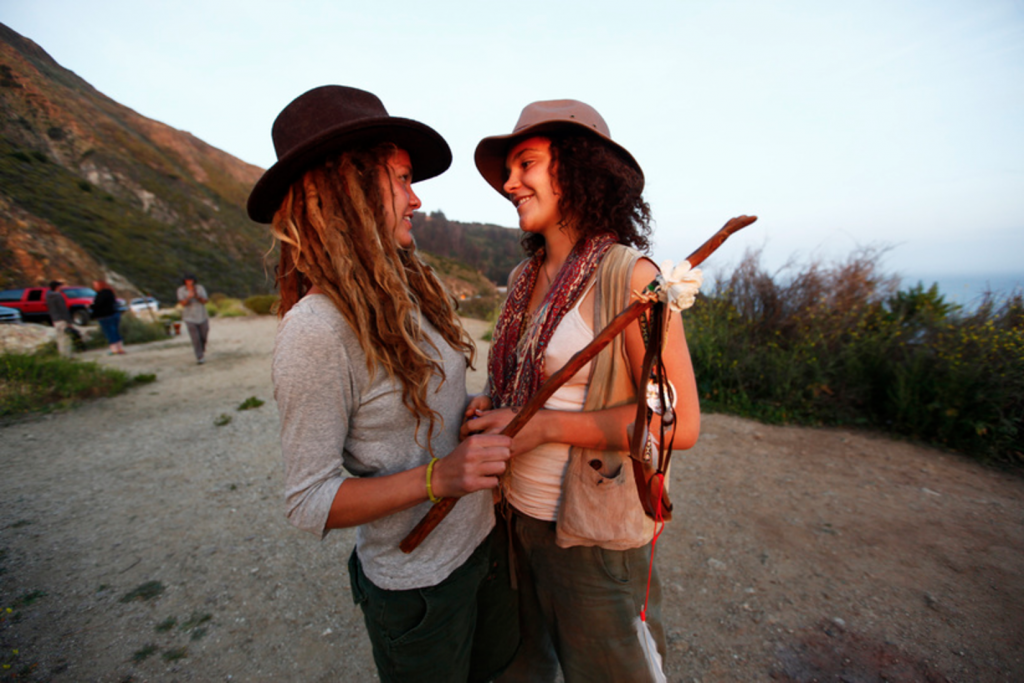
Rachel Bujalski shows us people that have chosen freedom for themselves outside of a slavish system of financial control. In that way, she provides light in our over polarized country right now.
We begin our 5 questions with Rachel about freedom, life and clawfoot tubs.
1. Families and individuals seem increasingly caged up mentally. Your images of folks living off-grid are providing your “fan base” with visionary ways out of their cages. A recent commenter on your instagram page thanked you for giving him the idea to pick up and move around. That’s real impact. In a world where people are using social media for narcissism where do you see your role of it, in light of your fanbase actually changing their own lives?
Rachel : I see people using social media for all reasons (good and bad) and for me I see it as a very important tool to share stories, voices, and inner dialogue that others can relate to. Imagery has huge power and so does the internet. Together, these two things when used in the right way can really grab people’s attention and when you have their attention, why not give them something thought provoking to look at where they can ask themselves important questions? I feel responsible for having even the social media following that I do because I see the power it has to make people think and take a closer look at reality.
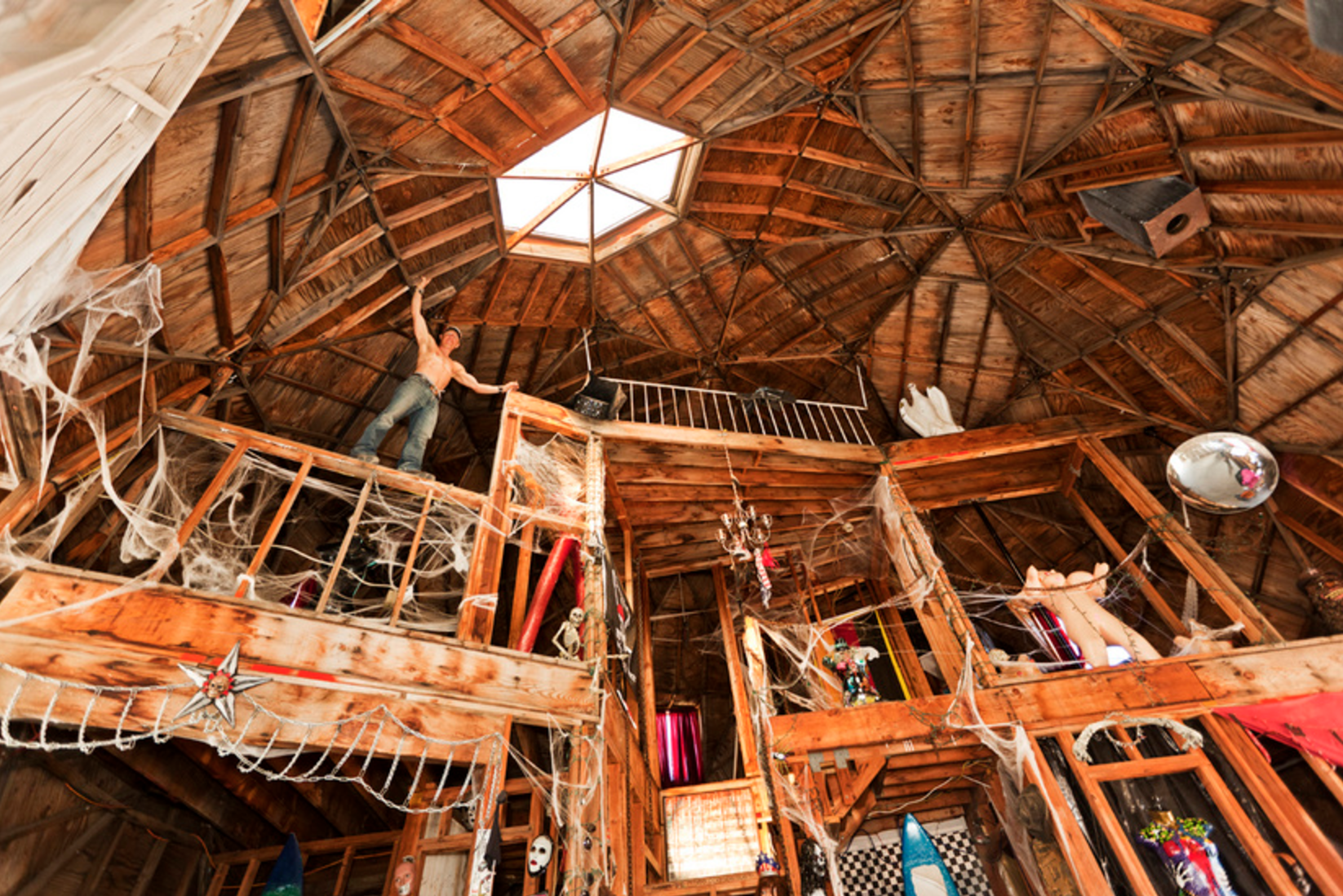
2. Is the “American Dream” still alive and if so, how has it changed? Is it in the middle of changing again?
Rachel : I think the American Dream is changing. I think people are waking up finally to see that what our parents considered success is not all that it’s cracked up to be. Instead of going into debt to have the big house, the car, the clothes, etc, people are realizing that those things don’t bring us ultimate happiness. People are seeing true freedom and happiness in time spent with friends, in nature and doing the things they love.
3. If you watch the news or take in any media there’s the appearance of western civilization really fighting to hold onto things. It’s seem to be a “shaming” culture where if something doesn’t fit in with a model of the American dream it is shamed, almost unconsciously. Your work deals with families and individuals who have left the system to live their lives. Many are flourishing and very happy however to a person stuck in a 9-5 miserable life, they might appear to be “living in shame.”
Can you talk a little about this shame and judgement ?
Rachel : The shame these people are feeling could come from a number of places. Maybe the people that are shaming those that are moving “off the grid” or into an alternate way of living might feel upset that they have been led astray from the beginning and worked their entire lives away to have “things” which is ultimately emptiness. These people could feel so settled into modern civilization they have no way out with all the stuff (house, cars, objects) they have acquired. From what they can see and not be able to do, maybe their judgement comes from a place of “how can I get there? When I’ve worked my whole life to be where I am now?”
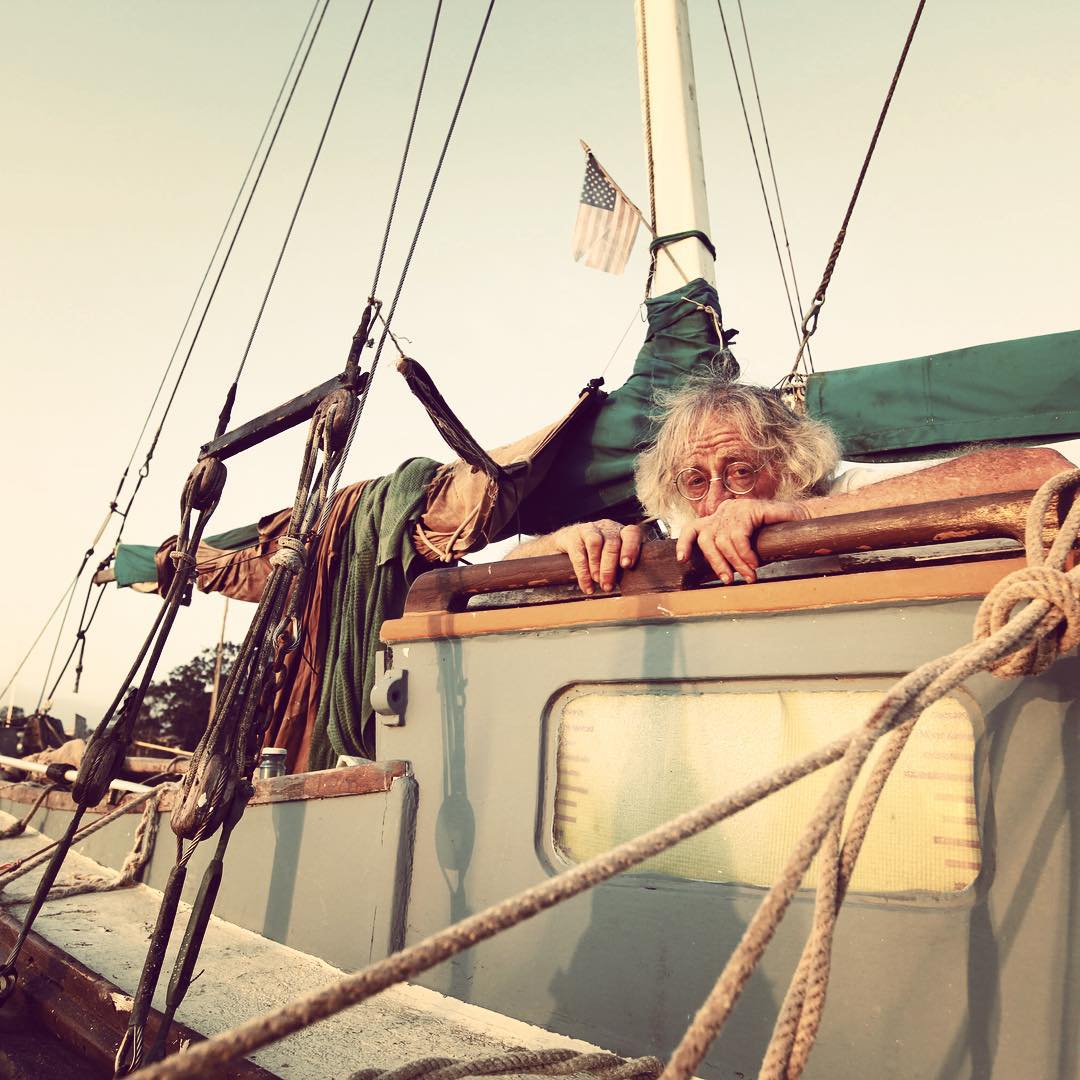
4. It seems the subjects in your photography have achieved a version of success for themselves due to finding personal freedom. In a world of power increasingly trying to restrict our personal freedoms on deep level (ie, fake news, neuro-marketing, NLP techniques in advertising, social media data-mining, terrible marriages) how do you see the concept of personal freedom being commodified?
Rachel : I think people are trying to break away from the corrupt system. Since they feel cheated with this fake news, interest on debt, student loans, and feel like it’s so unfair…. people are going to respond eventually to find loopholes or do “illegal” things to feel free from these restrictions. Whether it’s going to live in their van on the road indefinitely to get out of mortgages, trim weed over a summer to not pay taxes, get away from city life and live off the land but basically invent their own rules.
5. Lastly about you — I noticed in one of your recent instagram stories that you found a clawfoot tub in the middle of a forest somewhere and took a bath. How did you keep the water warm? How do you just camp in middle of nowhere without any fear? How do you decide where to go?
Rachel : Water stays warm when you make a fire under it 😉 but seriously, I decide where I want to go based on places I’ve always been curious about before. I will pass a forest on a road trip and tell myself “remember to go back there”. And it’s not that I’m not scared it’s just that I’m more curious for adventure, the people I could meet, and for the unknown, and that outweighs my fear.
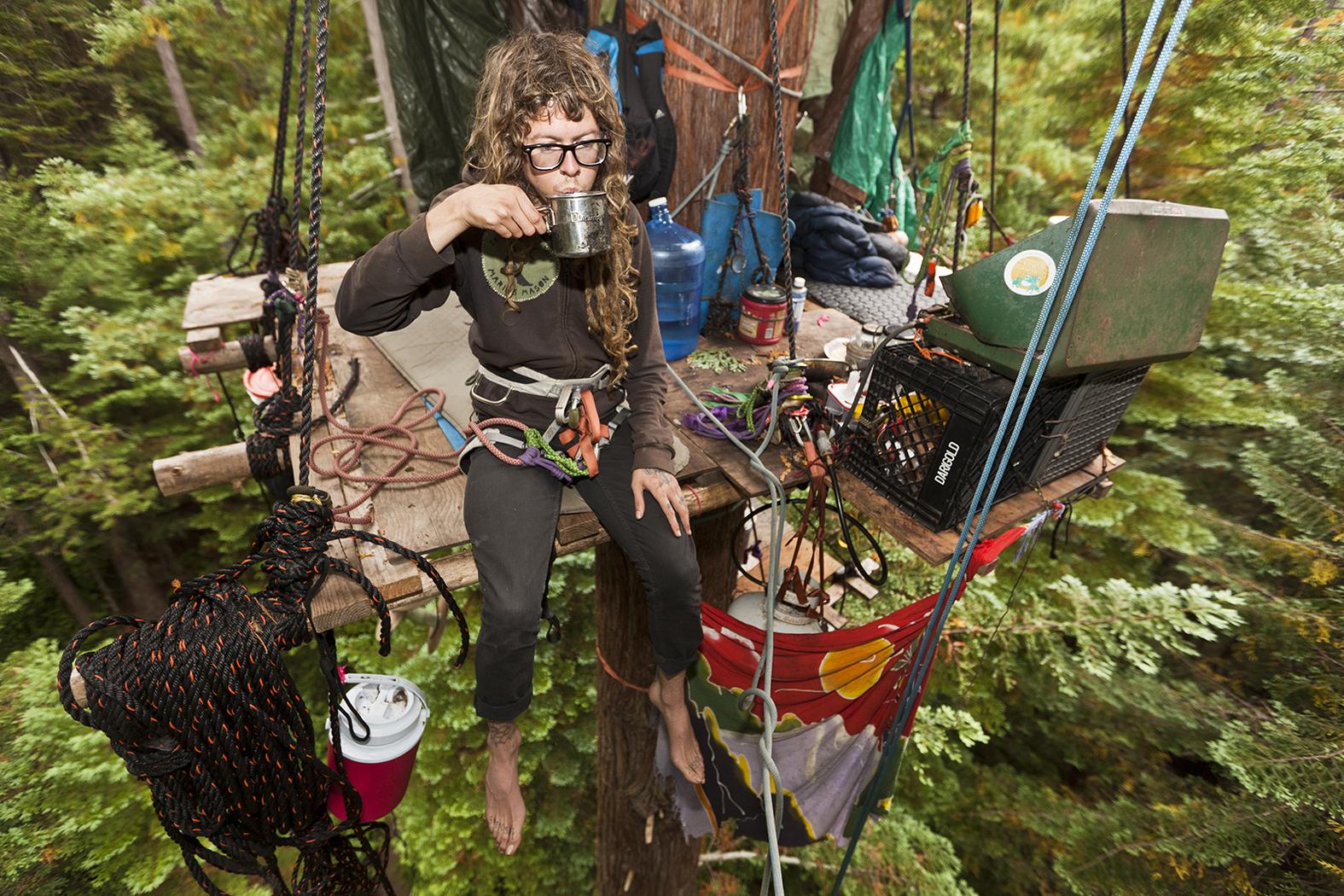

Want More Rachel Bujalski? Check out this Vice Article!